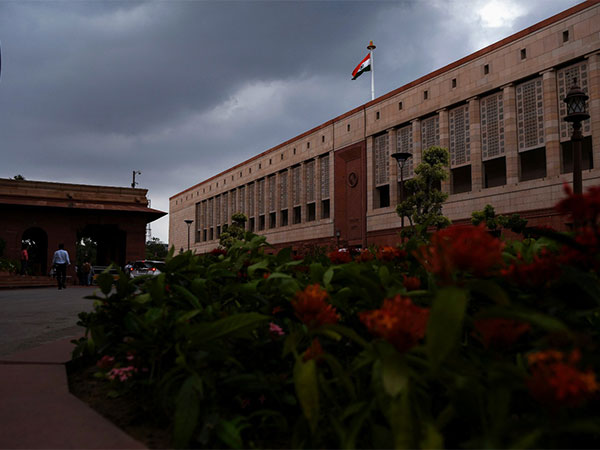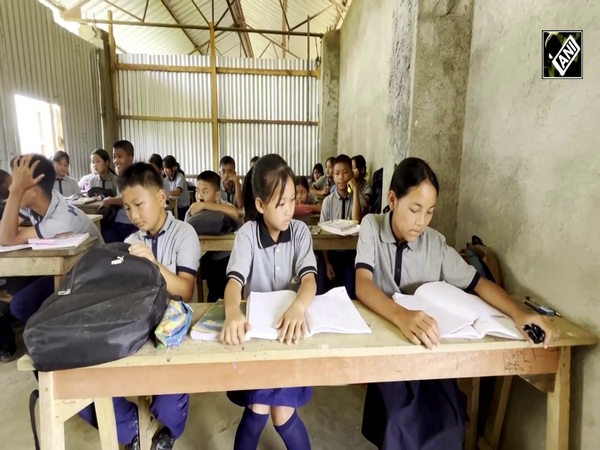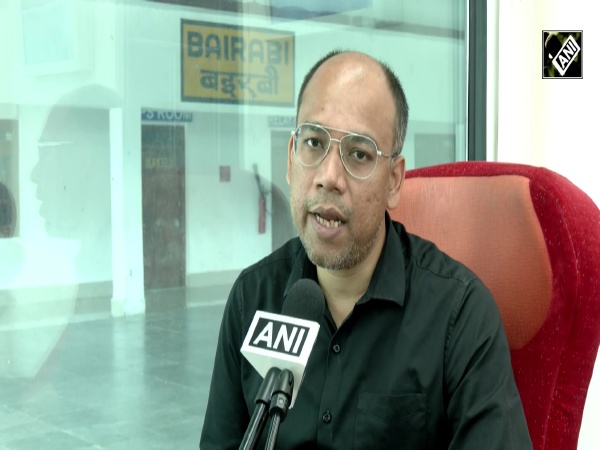Generative AI Meets Drug Discovery: KnowDis and IIT-Delhi Collaboration for AI-driven Antibody Design
Feb 23, 2023

New Delhi [India], February 23 (ANI/PNN): KnowDis and IIT Delhi's Yardi School of Artificial Intelligence are collaborating to develop cutting-edge Artificial Intelligence models that can discover potential antibodies for treating various kinds of diseases. The collaboration involves two renowned professors from the School of AI at IIT Delhi, Dr Sayan Ranu, and Dr Anoop Krishnan. The collaboration aims to strengthen the AI capabilities of KnowDis, making it a one-of-a-kind team capable of making crucial advancements in the field of drug design. The confluence of KnowDis and IIT Delhi brings together a multidisciplinary team to accelerate drug discovery with AI. The collaboration will add to the existing collaboration that KnowDis has with Dr Gaurav Goel from the Chemical Engineering Department at IIT Delhi.
AI-based drug discovery is expected to grow steadily, with a projected market volume reaching 1.4 billion dollars by 2024, while the overall antibody market is set to exceed 300 billion dollars by 2025. Several well-known tech and pharma companies such as Google, Nvidia, AstraZeneca, and Novartis are foraying into this space by establishing long-term collaborations with startups and spin-offs from academia. Numerous startups have attracted multi-million dollar VC funding to develop AI-driven drug discovery platforms for the biotherapeutics of tomorrow.
Antibodies and AI
Antibodies are a naturally occurring class of proteins that help the human immune system to hunt down invaders, such as disease-producing bacteria. Antibodies are custom designed by nature to bind to specific targets. To be precise, an antibody binds to an antigen, a molecule on the pathogen's surface.
Computational customization of antibodies as potential drug candidates can be achieved in a fraction of the time and resources required by experimental methods in a wet-lab setting. However, these computational techniques still require screening billions of candidate antibodies to identify the few that might be effective in treating a specific disease. Fortunately, recent breakthroughs in AI algorithms applied to protein structure prediction and design are revolutionizing the drug design field. In particular, the emergence of Generative AI is bringing about a fundamental shift in the drug design pipeline.
The Brave, New World of Generative AI
Generative AI solutions have already changed the landscape in computer vision (e.g., Stable Diffusion) and language processing (e.g., ChatGPT). Drug design is ripe for a similar paradigm shift.
While traditional AI methods concentrate on developing novel approaches to reduce the search space of potential antibodies and locate the appropriate solution, Generative AI generates new and potent drugs directly, without the need to explore billions of possibilities. Imagine that instead of searching for a needle in a haystack, you could quickly forge a new needle. Generative AI is a tool that, in the hands of skilled scientists, facilitates the creation of new drugs. KnowDis is leading the charge in developing Generative AI algorithms for antibody design.
MoonViz
KnowDis is developing MoonViz, an easy-to-use AI platform that can take in arbitrary specifications from domain experts and design suitable drugs using Generative AI algorithms.
MoonViz: An automated, AI-driven application to aid drug discovery and protein design
MoonViz is an automated, AI-driven one-stop platform for in silico computational drug discovery. It can enable researchers to accelerate drug discovery by equipping them with all the necessary information at their fingertips and automating many manual processes. Its built-in intelligence allows users from different backgrounds, viz. biologists, chemists, and AI researchers alike to effectively translate their research ideas and expedite the discovery of new candidate molecules. Available as a SaaS (Software as a Service) platform, MoonViz does away with the complex setup and maintenance processes and offers a frictionless way to use many built-in tailor-made workflows for AI-based de novo drug design. The platform provides access to user-friendly, carefully selected, refined building blocks that can uncover new insights.
KnowDis is an AI products company founded by Saurabh Singal, a computer scientist from IIT Delhi and Carnegie Mellon.
KnowDis has built and deployed AI applications specially catered for the fast-growing E-Commerce domain. Its Deep Learning models empower IndiaMART's B2B platform, serving millions of users daily.
KnowDis and its researchers are familiar with using AI in the biomedical domain. They have previously worked on applying machine learning for analyzing drug efficacy; developed a Computer Vision based application for use in hospitals; developed Deep Learning programs that predict binding affinity; and worked on in silico drug discovery and design.
In collaboration with the School of AI at IIT Delhi, KnowDis organizes a prestigious annual Machine Learning conference that includes themes that explore AI applications in Drug Discovery and Genomics.
The Yardi School of Artificial Intelligence (Yardi ScAI) is a renowned institute established in 2020 dedicated to advancing research and education in Artificial Intelligence, Machine Learning, and Data Science. With a focus on multidisciplinary applications, it has the support of faculty members from various departments, including computer science, civil engineering, and chemical engineering. The institute has strong partnerships with top industries and government committees and provides education through Ph.D., M.Sc., and M.Tech programs. Yardi ScAI is well-funded by Google, Arun Duggal, Ananth Krishnan, and Anant Yardi, CEO of Yardi Systems, and offers various grants and fellowships to students and faculty members. The Yardi School of AI is headed by Prof. Mausam, a well-known AI researcher, and professor of Computer Science at IIT Delhi.
This story is provided by PNN. ANI will not be responsible in any way for the content of this article. (ANI/PNN)

















